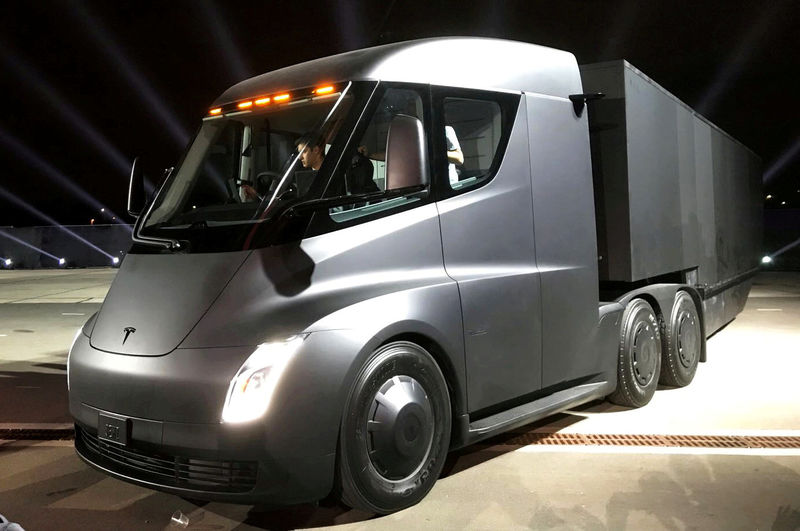This post was originally published on this site
https://i-invdn-com.investing.com/trkd-images/LYNXMPEJ9G0Q4_L.jpg
WASHINGTON (Reuters) -Electric vehicle manufacturer Tesla (NASDAQ:TSLA) on Tuesday urged the Biden administration to finalize much tougher fuel economy standards through 2032 than U.S. regulators have proposed.
The National Highway Traffic Safety Administration (NHTSA) in July proposed raising Corporate Average Fuel Economy (CAFE) car requirements by 2% and by 4% for trucks and SUVs annually between 2027 and 2032. Tesla wants the agency to finalize rules increasing stringency for cars by 6% annually and 8% for trucks and SUVs, saying it would best “conserve energy and address climate change.”
The NHTSA’s proposal would result in a fleet-wide average fuel efficiency of 58 miles (93 km) per gallon by 2032.
Tesla’s position puts it sharply at odds with major automakers.
On Monday a group representing General Motors (NYSE:GM), Toyota Motor (NYSE:TM), Volkswagen (ETR:VOWG_p) and nearly all other major automakers sharply criticized NHTSA’s proposal, saying it is unreasonable and requested significant revisions.
The American Automotive Policy Council, a group representing the Detroit Three automakers, separately urged NHTSA to halve its proposed fuel economy increases to 2% annually for trucks, saying the proposal “would disproportionately impact the truck fleet.”
The group noted 83% of vehicles produced by Ford (NYSE:F), GM and Chrysler parent Stellantis (NYSE:STLA) are trucks.
NHTSA said in response its rule “is focused on saving Americans money at the gas pump and strengthening American energy independence” and estimated the combined benefits of the proposal exceed costs by more than $18 billion.
The Alliance for Automotive Innovation said last month automakers would face more than $14 billion in non-compliance penalties between 2027 and 2032.
Toyota said on Tuesday the fines are “proof that there is insufficient technology to meet the proposed standards and that such standards have been set beyond maximum feasible.”U.S. automakers separately have warned the fines would cost GM $6.5 billion, Stellantis $3.1 billion and Ford $1 billion, citing NHTSA’s projections.
Automakers also raised alarm at the Energy Department’s proposal to significantly revise how it calculates the petroleum-equivalent fuel economy rating for EVs in NHTSA’s CAFE program, saying it would “devalue the fuel economy of electric vehicles by 72%.”

